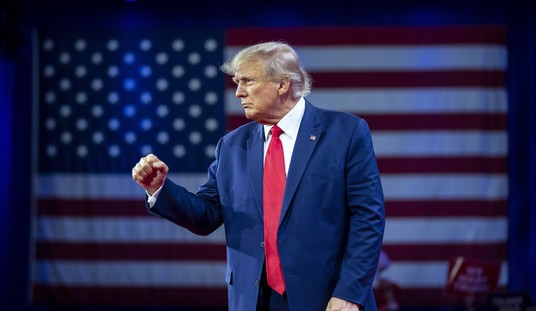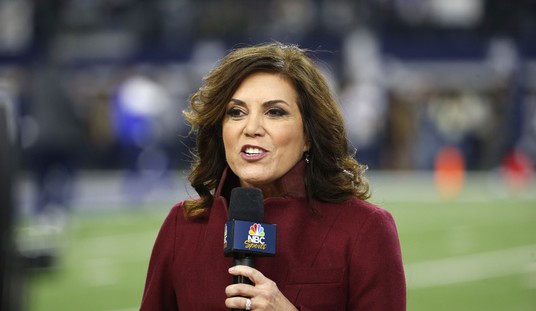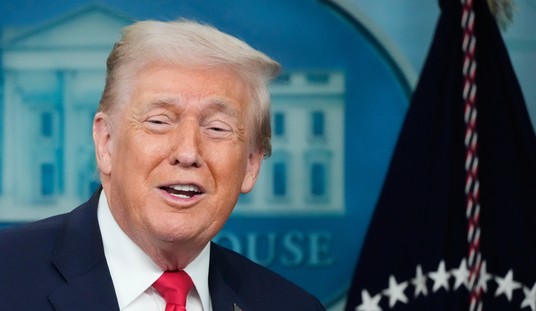In other breaking news, water is wet. James Oliphant’s blistering critique of progressive bloggers acting as the palace guard for Barack Obama and as Jay Carney’s irregular infantry provides a fun read, certainly. However, it aims a little too broadly and probably misses the mark as a result:
When Jay Carney was grilled at length by Jonathan Karl of ABC News over an email outlining administration talking points in the wake of the 2012 Benghazi attack, it was not, by the reckoning of many observers, the White House press secretary’s finest hour. Carney was alternately defensive and dismissive, arguably fueling a bonfire he was trying to tamp down.
But Carney needn’t have worried. He had plenty of backup.
He had The New Republic‘s Brian Beutler dismissing Benghazi as “nonsense.” He had Slate‘s David Weigel, along with The Washington Post’s Plum Line blog, debunking any claim that the new email was a “smoking gun.” Media Matters for America labeled Benghazi a “hoax.” Salon wrote that the GOP had a “demented Benghazi disease.” Daily Kos featured the headline: “Here’s Why the GOP Is Fired Up About Benghazi—and Here’s Why They’re Wrong.” The Huffington Post offered “Three Reasons Why Reviving Benghazi Is Stupid—for the GOP.”
It’s been a familiar pattern since President Obama took office in 2009: When critics attack, the White House can count on a posse of progressive writers to ride to its rescue. Pick an issue, from the Affordable Care Act to Ukraine to the economy to controversies involving the Internal Revenue Service and Benghazi, and you’ll find the same voices again and again, on the Web and on Twitter, giving the president cover while savaging the opposition. And typically doing it with sharper tongues and tighter arguments than the White House itself.
Well, that’s an indication of the quality of White House intellect and competence, not of that in the blogosphere. Oliphant is correct, of course, but it’s not exactly news that a president’s on-line supporters tend to support the president; it’s more of a tautology. At least when it comes to Daily Kos, “on-line supporters” is the apt description, and arguably the Huffington Post, although that has become a professional media outlet since its original founding as more of a commentary and traditional-blogging site. And Media Matters isn’t even a blog; it’s a continuing diatribe against any and all conservatives, one only taken seriously by the White House.
Had Oliphant narrowed his critique to blogging at established media outlets like the Washington Post, Slate, and Salon, he’d be on firmer ground. Even at that, though, his argument would ignore the adoption of blogging culture into mainstream media, which results in this kind of cheerleading in places where we’d earlier have expected at least some sense of holding the power clique accountable — or at least a little more skepticism. If this is an unprecedented level of support for Obama, it has more to do with timing than anything else. Media outlets didn’t start seriously engaging in the blogosphere until a few years ago.
Of course, the question of who gets those plum blogging spots might be open to some scrutiny. The Post has a couple of right-leaning bloggers and more balance amongst its columnists, but Slate and Salon … not so much. That is a valid critique, and one that perhaps the Post and its fellow publications should consider, and almost certainly won’t.
Oliphant’s colleague Ron Fournier isn’t terribly impressed with the argument:
You know, @JRubinBlogger, the same story can & will be written about GOP's Apologist Chorus.http://t.co/MnUrlKLxL1 @jamesoliphant
— Ron Fournier (@ron_fournier) May 9, 2014
True, but that doesn’t take into account the access given to right-leaning writers at high-profile publications, which is where Oliphant’s argument ultimately leads. And why aren’t they given that access? The fact that Democrats outnumber Republicans in newsrooms by a 4:1 ratio might have something to do with it.
According to a new study from the Indiana University School of Journalism, the percentage of journalists identifying as Republicans dropped to the lowest level in the 42-year history of their studies on the demographics of the media industry, and far below the level in the overall American population. While 24% of American voters affiliate with the GOP, only 7% of journalists share that affiliation. Twelve years ago, 18% identified as Republicans.
Democrats do better in the study, although they have been on the decline as well. In 1992, almost 45% of journalists were Democrats, far exceeding the level seen in the general population. In the latest study, that has dropped to 28%, roughly in parity with the rest of America. For the first time, a majority chose “independent” as an affiliation, although “other” also hit a record of 14.6%. Unfortunately, the study doesn’t explain the “other” category, which might have provided a rather entertaining look at politics. After all, those reporters who don’t fall into the three normal categories of American political affiliation outnumber Republicans by more than two to one.
Why does this matter? In part, because media bias always matters. And the problem is getting worse rather than better.
The media bias issue became a public debate only when alternative media developed that allowed for people to discuss it openly. First came talk radio, where Rush Limbaugh and dozens of other conservatives allowed millions of news consumers to vent about the leftward tilt in the news media. For the most part, the news media dismissed this shared experience of perceived bias as nothing more than paranoia and hucksterism. Not until CBS News reporter Bernard Goldberg blew the whistle in a 1996 Wall Street Journal column, and later in his 2001 book Bias, did this concern about media bias gain credibility — and even then, very slowly.
Goldberg argued at the time that the critics on talk radio had the wrong idea about the origin of media bias. There were no grand conspiracies to slant the news, but instead a lack of political diversity among journalists and editors. Nearly everyone in the industry thinks alike about issues and came from similar environments, which had the effect of creating ideological and cultural echo chambers. The problem of this singular-culture environment was so pervasive, Goldberg argued, that it couldn’t be perceived from the inside — but was painfully obvious from the outside. And the only way to fix that was to improve the diversity of perspectives, especially in politics.
The year after Goldberg’s prescription for a media-bias cure (2002), the percentages of Democrats and Republicans in the newsrooms was 36% and 18% respectively, a 2:1 ratio. Now it’s 4:1, 28% to 7%.
So yes, both sides have their “apologists,” but it’s also undeniable that one side has a lot more access to the media and its consumers than does the other. And that makes media bias worse, not better, and gives comfort to the powerful when Democrats control the White House … and apparently the narrative as well.








Join the conversation as a VIP Member